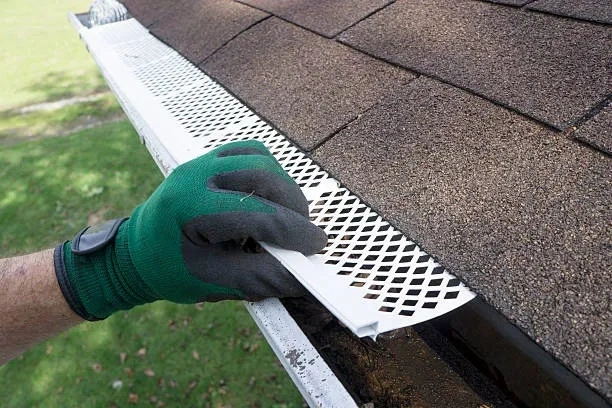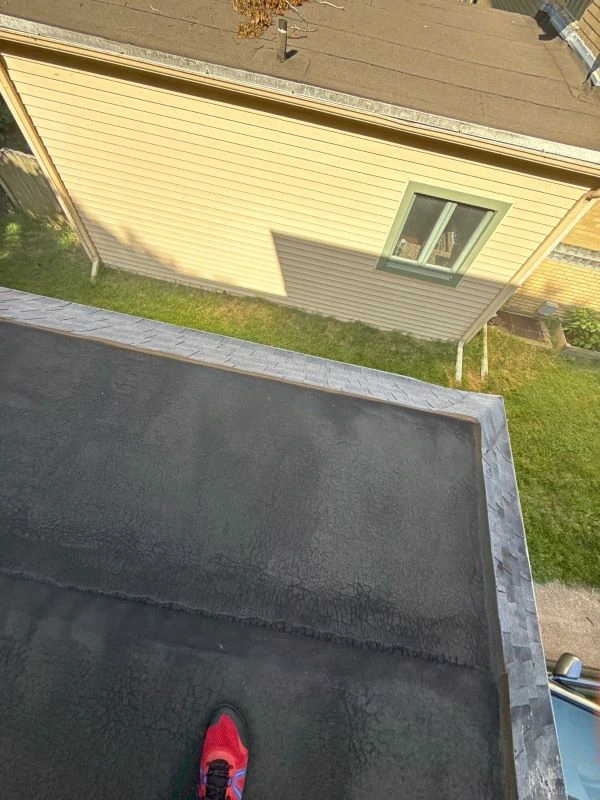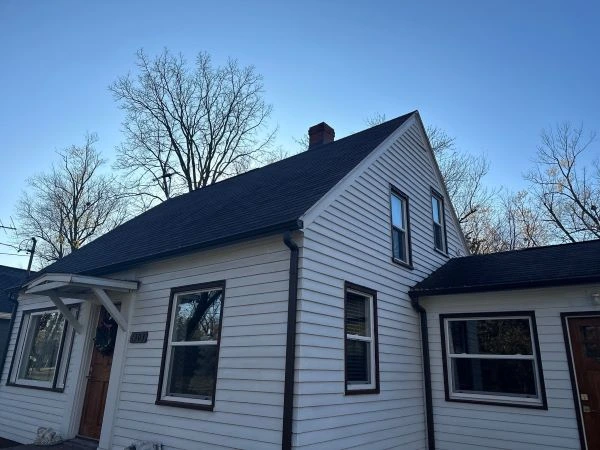Gutter Guards 101: Best Types, Costs, and Installation Tips
At Worthy Construction LLC, we help homeowners protect their homes from water damage with expertly selected and installed gutter guards. As a trusted roofing, siding, gutter, windows, and insulation contractor, we understand how a well-designed leaf guard gutter system prevents clogs, preserves fascia and foundations, and saves you from dangerous ladder climbs. Below, we share a comprehensive guide to the best rain gutter guard options, realistic costs, detailed installation insights, DIY considerations, and ongoing maintenance—so you can make a confident, data-driven decision for your home.

What Gutter Guards Do—and Why They Matter
Gutter guards act as a protective filter over your gutters, blocking leaves, needles, seed pods, shingle grit, and small debris while allowing rainwater to flow freely to downspouts. By preventing blockages, guards minimize overflow, ice dams, fascia rot, basement leaks, and landscape erosion. They also reduce the frequency of cleanings and extend the life of your gutter system. For homes under mature trees or exposed to seasonal storms, a leaf guard gutter upgrade is one of the most cost-effective home protection measures you can make.
Best Types of Gutter Guards (Pros, Cons, and Ideal Use Cases)
Micro-Mesh Guards
Overview: Micro-mesh systems feature a fine stainless-steel or aluminum screen that stops tiny debris—like pine needles and shingle grit—while passing heavy rain.
Pros: Exceptional filtration, durable materials, compatible with most gutter sizes, and low long-term maintenance.
Cons: Premium upfront cost; must be properly pitched to avoid surface tension issues.
Best For: Heavily wooded lots, homes with asphalt shingles shedding grit, and regions with mixed debris.
Surface Tension (Reverse Curve) Guards
Overview: Curved hoods guide water into the gutter through a narrow slot while leaves wash off the edge.
Pros: High flow capacity in heavy downpours; remarkable leaf-shedding performance.
Cons: Larger profile may be visible from the ground; can be sensitive to roof pitch and installation angle.
Best For: Properties with large broadleaf trees and historically heavy rainfall.
Perforated Aluminum Covers
Overview: Rigid, slotted covers that snap or screw onto the gutter.
Pros: Strong, affordable, easy to integrate with existing gutters, and resistant to rust.
Cons: Very small debris can enter; periodic rinsing may be needed.
Best For: Budget-conscious upgrades and homes with mixed foliage but not excessive needles.
Foam Inserts
Overview: Triangular foam wedges placed inside the gutter to block debris while allowing water through pores.
Pros: Fast to install, budget-friendly, easily DIY’d.
Cons: Shorter lifespan; can harbor organic growth if not maintained.
Best For: Short-term fixes, rental properties, or sections that are difficult to retrofit with rigid guards.
Brush Guards
Overview: Cylindrical brushes that sit inside the gutter, trapping debris on top.
Pros: Flexible, simple to install, good for unusual shapes or historic gutters.
Cons: Can capture and hold debris, requiring seasonal lifting and shake-outs.
Best For: Specialty gutters and DIY stopgaps in low-debris zones.
Our Take: For most homeowners seeking the best rain gutter guard, micro-mesh or perforated aluminum provides the strongest balance of performance, durability, and value. When appearance and capacity matter most, surface tension systems shine with professional fitting.
Gutter Guard Costs: What to Expect
Pricing varies by guard type, linear footage, roof complexity, fascia condition, and whether your gutters need repair or replacement. In general:
- Materials: Foam and brush systems are the least expensive; perforated aluminum is mid-range; micro-mesh and reverse curve systems command premium pricing for high performance and longevity.
- Labor: Professional installation ensures correct slope, fastener placement, and sealant integrity. Labor includes site prep, cleaning, hanger replacement, and minor gutter tune-ups.
- Total Investment: Expect a range aligned with system selection and prep needs. While upfront costs can be significant, reduced cleanings, fewer gutter repairs, and water damage prevention deliver excellent long-term ROI.
For a precise, line-item estimate tailored to your home, call (269) 207-7704, email admin@worthyroof.com
Step-by-Step Installation Tips (Pro-Level Guidance)
- Inspect and Tune Up the Gutters
Before any installation gutter guard work, we evaluate gutter pitch, seams, hangers, and downspout flow. Correcting sag, resealing leaky joints, and upgrading hangers prevents future failures. This step ensures guards are installed on a solid foundation, promoting even water distribution during storms and extending the lifespan of the entire system. - Deep Clean and Flush the System
A meticulous cleaning removes packed sludge, needles, and shingle grit. We flush downspouts to confirm unobstructed flow and check for hidden elbows or underground clogs. Clean, dry gutters allow adhesives and fasteners to adhere properly, minimize corrosion risks, and improve the performance of micro-mesh and perforated systems from day one. - Measure Precisely and Prefabricate Sections
Accurate linear measurements, miter angles, and end conditions ensure a tight, professional fit. We pre-cut sections on the ground to minimize roof time and reduce safety risks. Prefabrication also yields cleaner joints, fewer visible seams, and a consistent look from the street—hallmarks of a best rain gutter guard installation. - Fasten with the Right Hardware
We use corrosion-resistant screws into sub-fascia or rafter tails where possible, avoiding damage to shingles and preserving roof warranties. Fasteners are placed at manufacturer-specified intervals to resist uplift. Proper hardware selection is critical for snow-load resilience, storm-grade winds, and long-term stability without rattles or gaps. - Seal Vulnerable Transitions and Test Flow
Transitions at inside/outside miters, end caps, and around downspout outlets are sealed and reinforced to prevent bypass. We finish by simulating heavy rain with a hose test, observing flow, and fine-tuning pitch or overlaps. This quality-control pass ensures the leaf guard gutter system performs under real-world conditions.
DIY Gutter Guard Projects: When and How to Do It Safely
- Choose Approachable Systems
For DIYers, foam inserts and certain snap-in perforated guards are approachable. They require basic tools, reduce cutting on the roof, and allow easy removal for seasonal checks. Avoid complex reverse-curve hoods unless you have roofing experience; incorrect angles can cause overshoot or backflow during downpours. - Prioritize Ladder and Roof Safety
Level your ladder on firm ground, use a stabilizer, and never overreach. Wear gloves and eye protection—old metal gutters can have sharp edges and hidden fasteners. If your roof is steep or surfaces are slick from algae, postpone DIY and call a gutter guard installer to mitigate fall risk and liability. - Plan for Maintenance Access
Even premium guards benefit from inspection ports at roof valleys and heavy-debris corners. Leave removable sections where leaves and needles accumulate seasonally. Planning access points now saves time later and keeps the installation gutter guard project running efficiently year after year.
Signs You Need Gutter Guards or Repairs
- Debris Bridging at Roof Valleys: High-volume valleys can shoot leaves past the guard edge. We add diverters or extended valley splash guards to break velocity and direct water into the trough without debris accumulation.
- Guard Sag or Uplift in Wind: Incorrect fastener spacing or weak substrate causes flex. We re-fasten with structural screws into rafter tails or replace failing fascia sections.
- Grit Build-Up on Micro-Mesh: Fine particles can sit on top of mesh over time. A quick seasonal rinse or soft-brush sweep restores full flow without removing sections.
- Overflow During Cloudbursts: We evaluate downspout count and size, adding 3×4 downspouts where needed and confirming continuous slope to eliminate choke points.
Common Gutter Guard Problems—and How We Solve Them
- Frequent Overflow and Water Stains
If water sheets over your gutters in moderate rain, clogs are likely. Look for drip lines on siding, peeling paint, or washouts in your mulch beds. Chronic overflow accelerates fascia rot and can undermine your foundation. A leaf guard gutter solution paired with a pitch correction can eliminate these recurring issues. - Pest and Nesting Activity
Birds, squirrels, and insects love clogged gutters as warm, damp nesting spots. If you see granules of nesting material on the ground or hear scratching near eaves, it’s time to act. Guards prevent buildup that attracts pests and restricts access to the trough, protecting both your gutters and your attic insulation systems. - Ice Dams or Winter Icicles
In cold climates, clogged gutters exacerbate ice dams by trapping meltwater. If you’ve noticed icicle “curtains” along eaves, your drainage system is underperforming. While ventilation and insulation play roles, clean gutters with micro-mesh guards help water exit quickly before freeze-thaw cycles can wreak havoc.
Maintenance Schedule: Keep Guards Performing for the Long Haul
- Seasonal Visual Inspections
Walk the perimeter each season and look up at roof valleys, inside corners, and overhanging branches. Check for visible debris mats, uneven lines, or staining. A small problem—like a lifted corner or missing screw—caught early prevents a large leak, soffit damage, or landscaping erosion later. - Biannual Rinsing in High-Debris Zones
Even the best rain gutter guard benefits from a light rinse in spring and late fall, especially under pine or sweetgum trees. Use a garden hose set to gentle pressure. Avoid pressure washers that can force water behind fascia or bend thin aluminum edges, compromising performance and aesthetics. - Prune Overhangs and Manage Roof Granules
Trim branches to reduce heavy drop zones. If your roof is shedding excess granules, we inspect shingles for age and wear; addressing roofing issues complements guard performance. Coordinating roofing and gutter work with one contractor simplifies warranties and ensures a seamless system.
Why Choose Worthy Construction LLC
We bring end-to-end expertise across roofing, siding, gutters, windows, and insulation. That big-picture perspective means we don’t just snap on covers—we engineer a water-management system tuned to your roof pitch, valleys, rainfall patterns, and foundation needs. Expect clear estimates, premium materials, and craftsmanship that stands up to wind, snow, and sun.
FAQs: Gutter Guards
1. What is the best rain gutter guard for mixed debris like leaves and pine needles?
For mixed debris, we typically recommend stainless-steel micro-mesh or a high-quality perforated aluminum system. Micro-mesh excels with fine pine needles and shingle grit, while perforated covers balance cost and performance for broadleaf debris. The right choice depends on roof pitch, valley placement, and tree species. We assess rainfall intensity, downspout sizing, and fascia condition to ensure the guard you select maintains flow during storms and requires minimal maintenance.
2. How much does professional gutter guard installation cost?
Costs vary by guard type, linear footage, roof complexity, and prep work like hanger upgrades or gutter realignment. Foam and brush systems cost less but have shorter lifespans. Micro-mesh and reverse-curve systems cost more up front but provide superior durability and filtration. We provide a written estimate after on-site evaluation, outlining materials, labor, and any recommended enhancements such as additional downspouts or valley diverters to optimize overall performance and long-term value.
3. Can I install gutter guards myself, or should I hire a gutter guard installer?
DIY is feasible for foam, brush, and select snap-in perforated guards if you have safe ladder practices. However, complex systems—micro-mesh with reinforcement or reverse-curve hoods—perform best with professional alignment and secure fastening. Hiring an experienced gutter guard installer reduces safety risks, preserves roof warranties, and ensures proper sealing at miters and outlets. We also test flow under simulated rain so you know the system works before the next storm arrives.
4. Do gutter guards eliminate maintenance completely?
No guard system is truly maintenance-free, but the right choice will dramatically reduce cleaning frequency. With micro-mesh or perforated covers, you’ll typically need light seasonal inspections and occasional rinsing in high-debris zones. Planning removable sections at valleys and inside corners makes maintenance quick and safe. Our service plans include scheduled checkups to keep your leaf guard gutter system flowing, so you spend minutes on upkeep instead of hours on dirty, risky ladder work.
5. Will gutter guards help with ice dams and winter issues?
Gutter guards support winter performance by keeping channels clear so meltwater can drain, which reduces ice accumulation at eaves. However, ice dams are multifactorial—attic insulation, ventilation, and roof design also matter. We evaluate the whole building envelope, recommending air sealing and insulation upgrades where needed. Paired with well-pitched gutters and correctly sized downspouts, premium guards help manage winter runoff and protect fascia, soffits, and landscaping from freeze-thaw damage.
Ready to Protect Your Home?
If you’re comparing systems and want the best rain gutter guard solution tailored to your property, we’re here to help—from evaluation and design to expert installation gutter guard services. As your local gutter guard installer, we deliver proven materials, precision workmanship, and clear pricing. Call Worthy Construction LLC at (269) 207-7704, email admin@worthyroof.com, or visit worthyroof.com to schedule your consultation and keep water where it belongs: away from your home.






Trustindex verifies that the original source of the review is Google. Worthy Construction just replaced my roof, skylights, and gutters. I live out of town and selling my parent's house so this company came through a personal referral. Khari and team were such a joy to work with. He answered my questions, kept me updated on progress, did everything he said he was going to do, and met all of commitments on time. It's not easy to know what's happening while living out of town and I appreciate Khari's communication skills, timeliness, and overall this has been an amazing experience! I highly recommend Worth Construction!!Trustindex verifies that the original source of the review is Google. Worthy Construction did an excellent job replacing our roof. They were very easy to work with throughout the entire process. They answered all of our questions promptly and delivered a great finished product. I’d highly recommend them for your roofing needs.Trustindex verifies that the original source of the review is Google. Very professional, great guy that will work with you. Highly recommended for sure. Mr. Worthy is very dependable! He completed our roof on time and as expected!Trustindex verifies that the original source of the review is Google. Greatest service ever! Super fast and did a fantastic job. I will definitely save them to do future jobs that need to be fixed. The greatest ever!Trustindex verifies that the original source of the review is Google. My roof was very damaged, I had a huge hole in my roof from constant tree debris and age. I didn’t have any expectations going in to the project but I was greatly impressed with the speed of service! The ten we done in 2 days! They cleaned up afterwards, the materials were great quality and . The team replaced my entire rooftop. Mr. Worthy was very respectful and responsive to my concerns regarding the project, I would certainly recommend his company to anyone looking for a new rooftop!Trustindex verifies that the original source of the review is Google. He was a pleasure to work with. They were prompt and professional the whole project. He kept me informed the whole process and his work was of the highest quality. They were very respectful of my and my neighbor's properties. I am very very happy with the work they did for me.Trustindex verifies that the original source of the review is Google. Quality work! Highly recommended!Trustindex verifies that the original source of the review is Google. I didn't have much word done, but I called after noticing a leak in my ceiling after a storm. Khari answered right away and was able to come and take a look within a couple days. He found the problem and was able to fix if with just caulking for no charge, 100% recommendTrustindex verifies that the original source of the review is Google. We had our roof and some gutters done by Worthy Construction and not only was it very timely, but they also were very friendly. We had the unfortunate experience of having to replace roof sooner than expected and they came and explained everything to us and then gave us options that really worked for us. Khari and his team did a wonderful job for us and I would recommend their service again and again. When they were working on our roof they noticed a leak in one of our gutters and replaced that as well which was very helpful!Trustindex verifies that the original source of the review is Google. I needed a roof replacement, Mr. Worthy worked with me and my insurance company from start to completion. He gave me a time frame and he stuck with it. High praise for him and his professional team.




